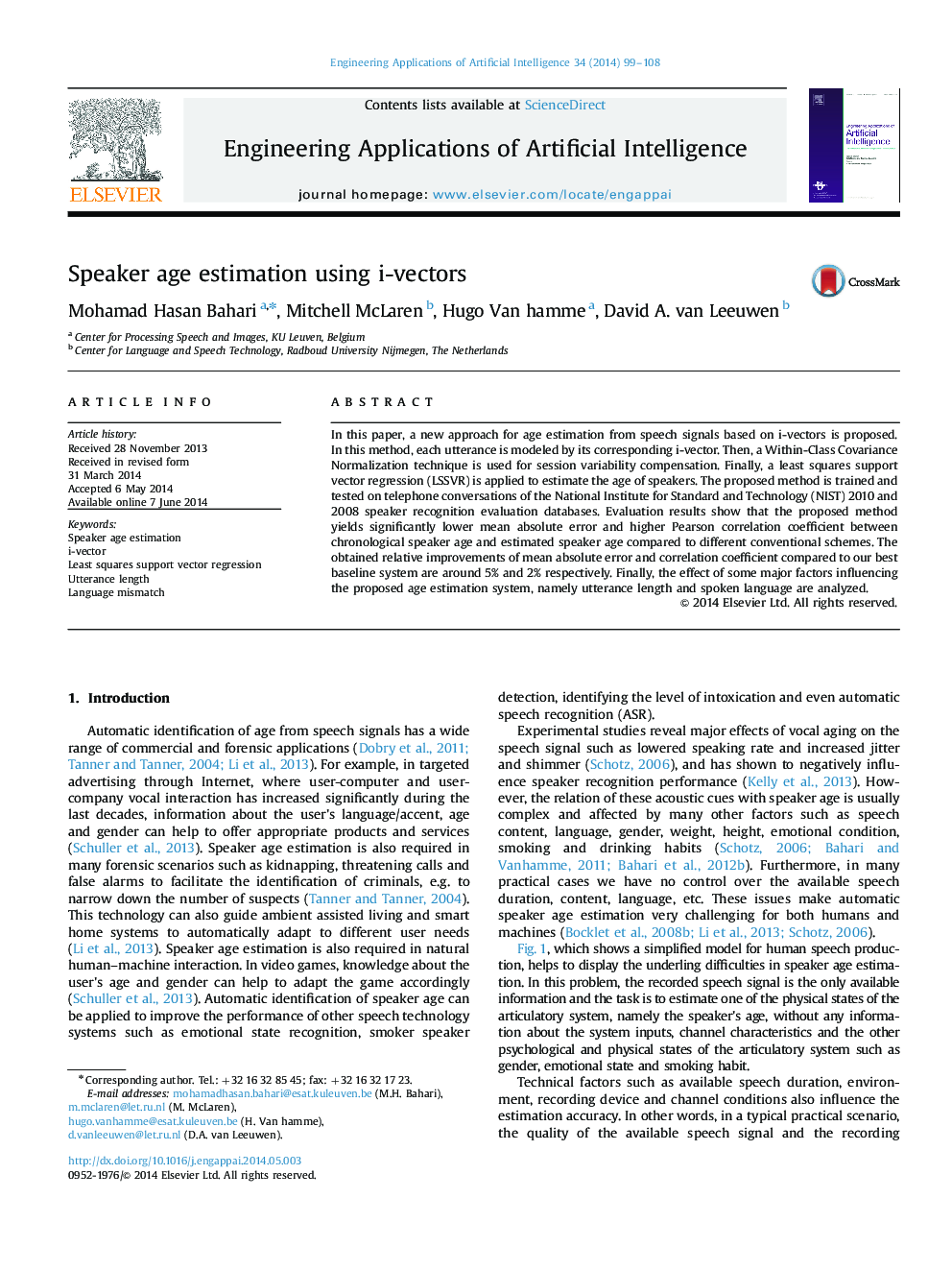| Article ID | Journal | Published Year | Pages | File Type |
|---|---|---|---|---|
| 380433 | Engineering Applications of Artificial Intelligence | 2014 | 10 Pages |
•A new approach for age estimation from speech signals based on i-vectors is proposed.•Utterances are modeled using the i-vector framework.•Within-class covariance normalization is used for session variability compensation.•Least squares support vector regression is applied to estimate the age of speakers.•The proposed method significantly improves conventional schemes.
In this paper, a new approach for age estimation from speech signals based on i-vectors is proposed. In this method, each utterance is modeled by its corresponding i-vector. Then, a Within-Class Covariance Normalization technique is used for session variability compensation. Finally, a least squares support vector regression (LSSVR) is applied to estimate the age of speakers. The proposed method is trained and tested on telephone conversations of the National Institute for Standard and Technology (NIST) 2010 and 2008 speaker recognition evaluation databases. Evaluation results show that the proposed method yields significantly lower mean absolute error and higher Pearson correlation coefficient between chronological speaker age and estimated speaker age compared to different conventional schemes. The obtained relative improvements of mean absolute error and correlation coefficient compared to our best baseline system are around 5% and 2% respectively. Finally, the effect of some major factors influencing the proposed age estimation system, namely utterance length and spoken language are analyzed.
